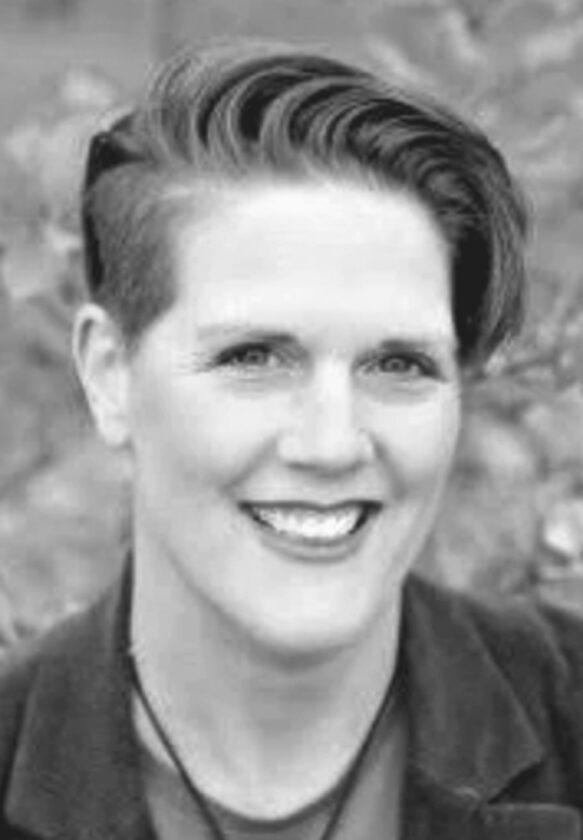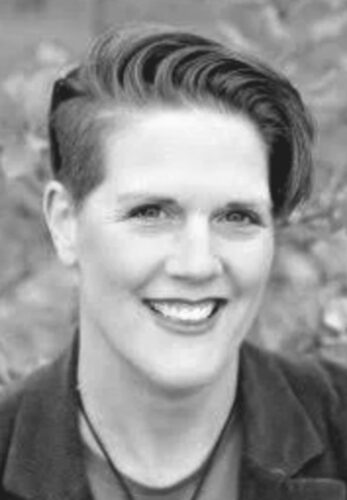America is wild — get out there and enjoy it

Bonnie Jean Feldkamp
 By BONNIE JEAN FELDKAMP
By BONNIE JEAN FELDKAMP
When I was a kid, my family often drove from northern Kentucky to Clearwater, Florida, where my grandmother had retired. We loaded down our van with camping gear and snorkels. Along the way, we camped in the Smokey Mountains, canoed with alligators in the Okefenokee Swamp and snorkeled with the manatee in Crystal River. Nature was my family’s playground.
We were ecotourists before it was cool. According to Market.us, in recent years “the increasing awareness of environmental issues and the desire for authentic and sustainable travel experiences have driven the demand for ecotourism.” It is defined by the International Ecotourism Society as “responsible travel to natural areas that conserves the environment, sustains the well-being of the local people, and involves interpretation and education.”
The most popular ecotourism destination is Costa Rica, but what my childhood taught me is that you can practice ecotourism at home — and it matters. Pick any region of our country, from the Everglades to the Rocky Mountains, the California coastline or the vastly diverse terrain of Alaska. Everywhere you go, and no matter where you live, there are incredibly beautiful spaces to explore and learn.
Massive federal funding cuts means that active participation in America’s natural spaces and the communities that support them are vital. Our country has 63 national parks, almost 7,000 state parks and 571 national wildlife refuges, monuments and conservation areas. Beyond our public lands, there are over 1,200 land trusts nationwide, which protect land for conservation purposes, and while they are privately owned, many are open to the public for exploring.
It’s why I wanted to talk to Brooke Mitchell, who is a conservation biologist and explorer as well as the founder and executive producer of the podcast “Rewildology.” I asked her for tips on how we could implement ecotourism practices on every vacation or adventure.
The first thing Mitchell wanted to acknowledge was that travel has a carbon footprint regardless of the traveler’s intent. However, she believes “that when it is done properly and conscientiously, there is a net positive.”
Mitchell points out one of the big issues about tourism in general is that it is rare for the money that you spend to leave big corporate businesses and actually get into local communities. She said, “So if you are booking through a company, do a lot of research into how well connected they actually are with the local community.”
If you’re building your own experience and not relying on a travel company for your plans, you can be more conscientious about benefitting the community you’re visiting. Use a local guide for tours, fishing and hunting.
Also, consider your accommodations. Who owns where it is that you’re going to stay? Maybe choose to camp on public lands, or if you’d rather not rough it, check into a local bed and breakfast or tiny lodge rental before you book at a big-name hotel.
Mitchell said, “I’ve come to learn that you’ll have way better experiences too, because there’s a cultural experience that you wouldn’t have had before.”
She also recommends skipping the big-box stores for getting any supplies. “My dad owns a hardware store,” Mitchell said, so supporting locally owned businesses hits home for her.
Plus, talking to the locals with inside information will lead you to incredible adventures and the best food. “I’ve been around the world for nature and wildlife,” Mitchell said, “and it’s always the people that I remember most.”
Apply Mitchell’s wisdom wherever you go. You don’t have to travel the world for an incredible outdoor adventure that sustains our natural world. “One of the most amazing perks we have as American citizens is that we have public lands that we all own,” Mitchell stresses, “and the diversity of ecosystems in the U.S. is absolutely freaking wild.” Get out there and enjoy them.
Do you know anyone who’s doing cool things to make the world a better place? I want to know. Send me an email at Bonnie@WriterBonnie.com. Also, stay in the loop by signing up for her weekly newsletter at WriterBonnie.com. To find out more about Bonnie Jean Feldkamp and read features by other Creators Syndicate writers and cartoonists, visit the Creators Syndicate website at www.creators.com. Copyright 2025 Creators.com.






